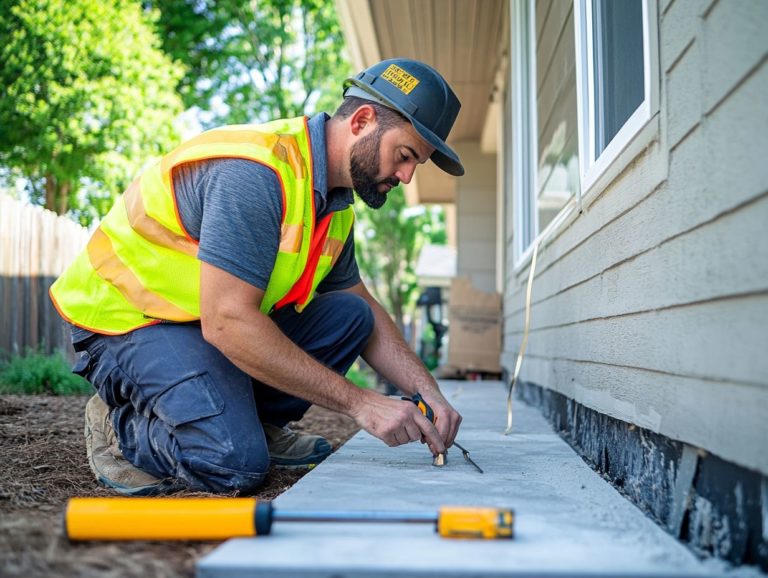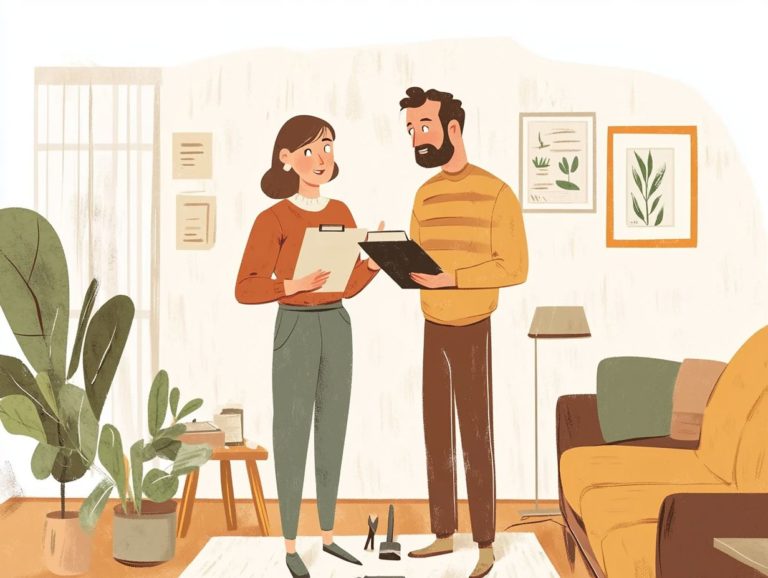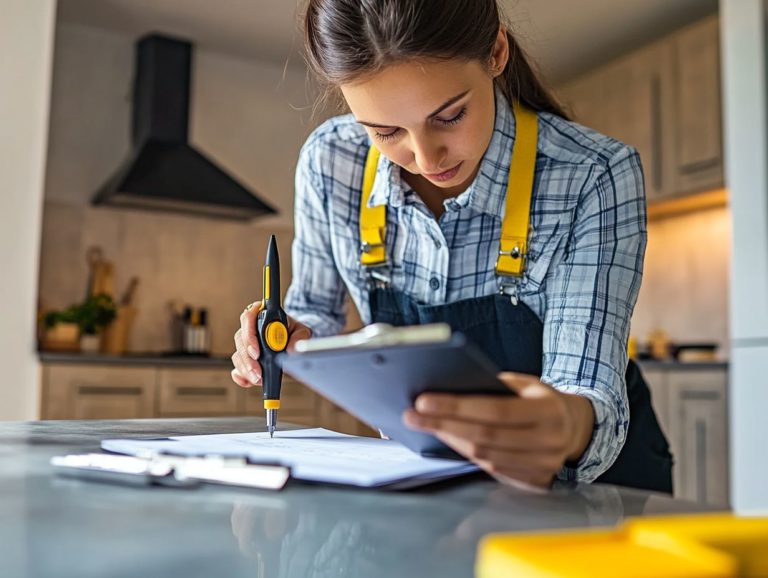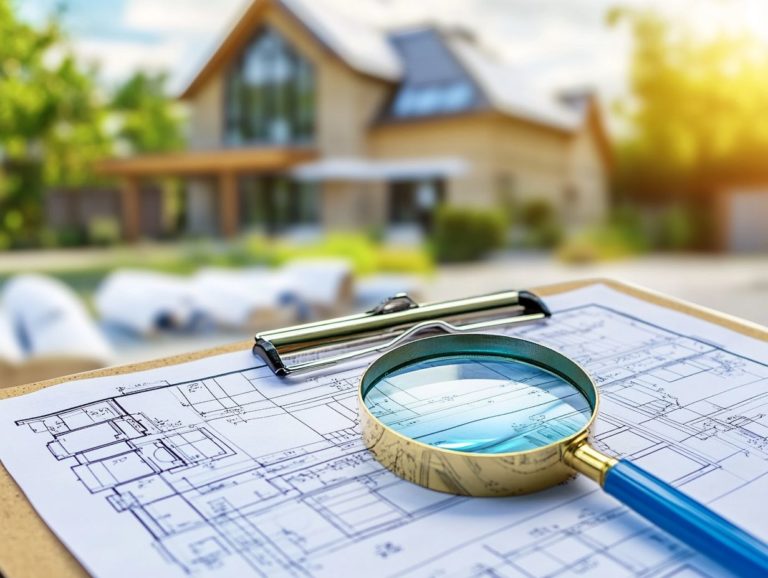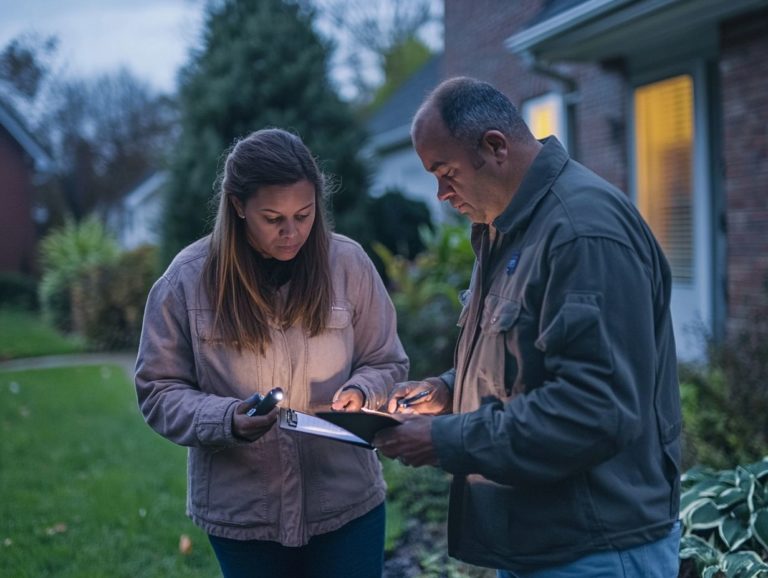The Importance of Home Inspections Before Buying
Buying a home is undoubtedly one of the most significant investments you ll ever make, and navigating this intricate process can feel quite overwhelming.
One crucial step that often slips under the radar is the home inspection a thorough evaluation that can save you from costly surprises later on.
This article delves into what a home inspection entails, why it s essential, and what you can anticipate during the process.
It also sheds light on common issues that may arise and offers guidance on selecting the right inspector. By grasping these key aspects, you ll be better positioned to make informed decisions and safeguard your investment.
Contents
- Key Takeaways:
- What is a Home Inspection?
- Why Home Inspections are Important
- What to Expect During a Home Inspection
- Common Issues Found During Home Inspections
- How to Choose a Home Inspector
- Costs and Considerations of Home Inspections
- Home Inspection Process: Step-by-Step
- Final Thoughts on Home Inspection
- Frequently Asked Questions
- What is the importance of home inspections before buying a house?
- Do I really need a home inspection if the house looks new?
- Who should I hire to perform a home inspection?
- What areas of the house are typically included in a home inspection?
- What happens if the home inspection reveals major issues with the house?
- Can a home inspection save me money in the long run?
Key Takeaways:
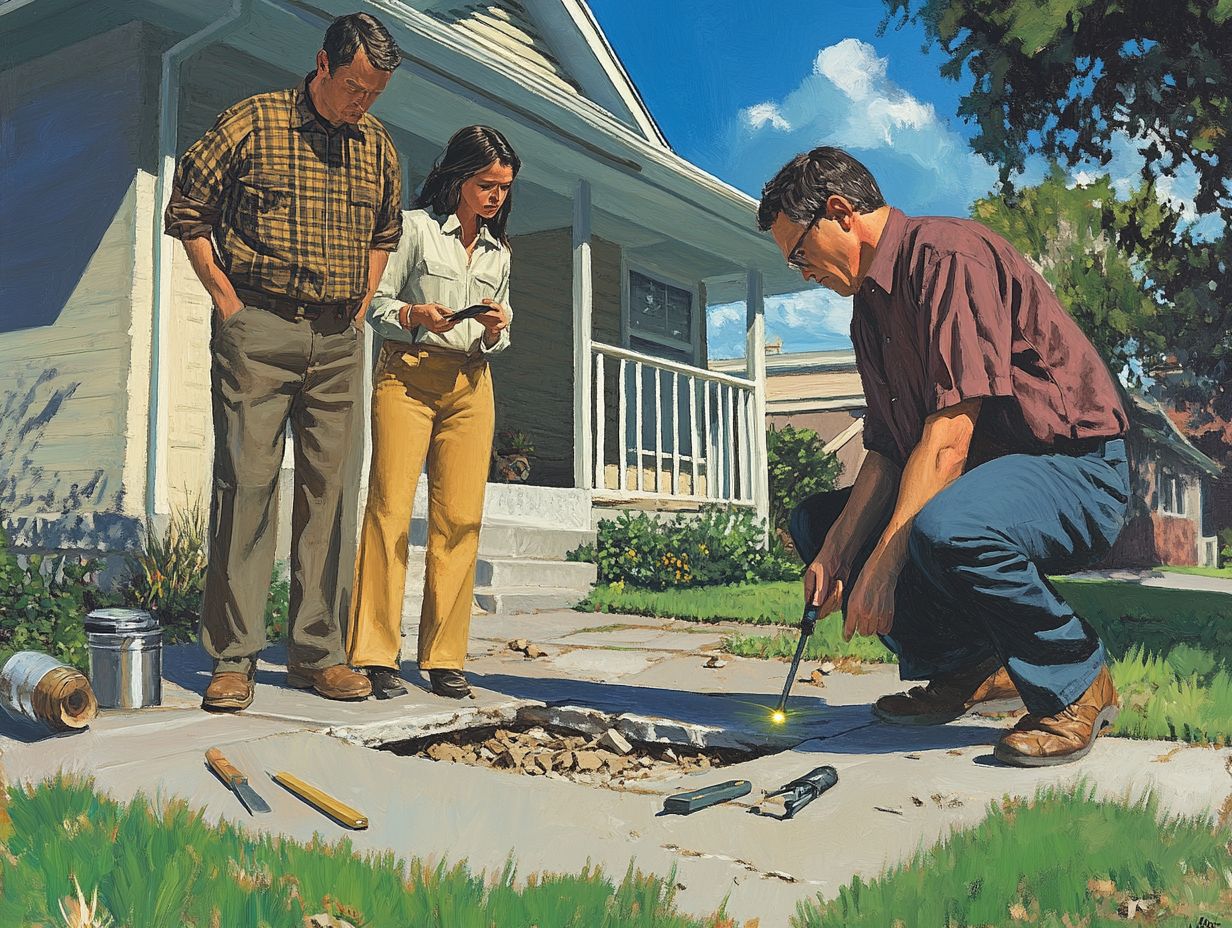
Home inspections are crucial before buying a property. They provide a detailed assessment of the condition of the house, highlighting the importance of home inspections before buying, helping buyers make informed decisions and avoid costly surprises.
A thorough home inspection can uncover potential issues. From structural to electrical and plumbing concerns, the inspection report provides crucial information that may affect the value and safety of the property. Understanding the importance of home inspections for property buyers is essential in making informed decisions.
Choose a qualified and experienced home inspector. Look for credentials, experience, and reviews before hiring a home inspector. Understanding the importance of home inspections for new homeowners can ensure their expertise and attention to detail make all the difference in achieving a successful and stress-free home buying experience.
What is a Home Inspection?
A home inspection is a thorough evaluation of a property’s condition, and understanding the importance of a thorough home inspection is crucial, typically conducted by a qualified home inspector before you finalize a purchase agreement.
This essential process enables you as a homebuyer to uncover both major and minor issues within the home, giving you a clear understanding of crucial systems like plumbing, electrical, and heating, ventilation, and air conditioning (HVAC), along with any potential safety hazards. For more insights, explore the importance of home inspections.
The detailed inspection report you’ll receive offers valuable insights into structural concerns, air quality, and more, equipping you to make informed decisions and negotiate confidently with sellers.
Why Home Inspections are Important
Home inspections play an important role for both buyers and sellers, revealing the true condition of a property. Understanding the importance of pre-purchase home inspections enables you as a homebuyer to make informed decisions and negotiate with confidence during your real estate journey.
Pinpointing potential safety issues, hidden defects, and anticipated repair costs allows you to leverage the inspection report to your advantage. This not only strengthens your position in negotiations with sellers but also makes sure you can act fast if issues arise.
What to Expect During a Home Inspection
During a home inspection, you can anticipate a meticulous evaluation of the property s various systems, including HVAC, electrical, plumbing, and roofing.
A detailed checklist will guide the inspector s analysis, ensuring nothing is overlooked. Expect the inspection duration to vary based on the size and condition of the home, as well as the complexity of the systems involved.
Ultimately, you ll receive a comprehensive inspection report that outlines all the findings, giving you valuable insights into your potential new home.
Common Issues Found During Home Inspections
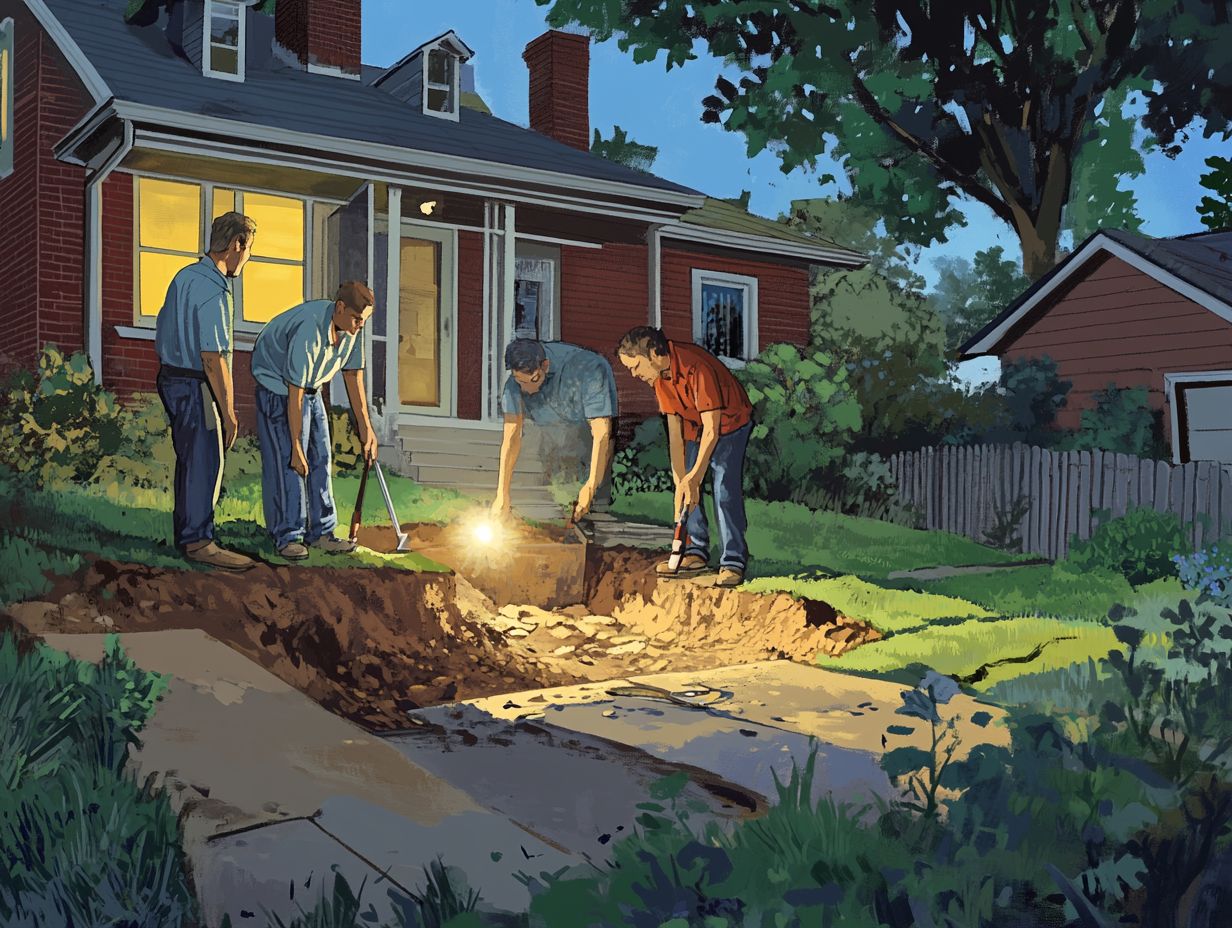
Home inspections frequently unveil a variety of common issues that can significantly impact the value and safety of your property. These may include:
- Structural concerns
- Electrical system malfunctions
- Plumbing defects
- Inadequacies in the HVAC system
By identifying both major and minor issues during the inspection, you gain valuable insights into potential repair costs and safety risks. Additionally, the inspection can uncover hidden problems like pest infestations or animal intrusions that might not be immediately apparent.
How to Choose a Home Inspector
Selecting the right home inspector is an essential part of your home buying journey. The qualifications and credentials of the inspector you choose significantly influence the accuracy and reliability of the inspection report.
As a prospective homebuyer, it’s wise to seek licensed inspectors affiliated with reputable inspection companies, along with positive ratings from previous inspections. Understanding the importance of home inspections in real estate ensures that your inspector has the expertise needed to unearth both major and minor issues within the property, giving you peace of mind as you make one of life’s most important investments.
Costs and Considerations of Home Inspections
The costs associated with home inspections can fluctuate significantly, influenced by various factors such as the size and condition of the roofing, plumbing, electrical systems, and the overall state of the home being evaluated.
Understanding these factors is crucial for home buyers to budget effectively and anticipate any potential repair costs that may arise from the inspection results. This knowledge aids in financial planning and helps you make informed decisions about your future home.
Home Inspection Process: Step-by-Step
The home inspection process follows a well-organized step-by-step approach, ensuring a thorough evaluation of the property by a qualified home inspector.
It begins with an initial walkthrough, followed by detailed assessments of essential systems, including roofing, plumbing, and electrical systems.
This careful examination leads to the creation of an inspection report that highlights the findings and includes an inspection checklist for your future reference.
1. Preparing for the Home Inspection
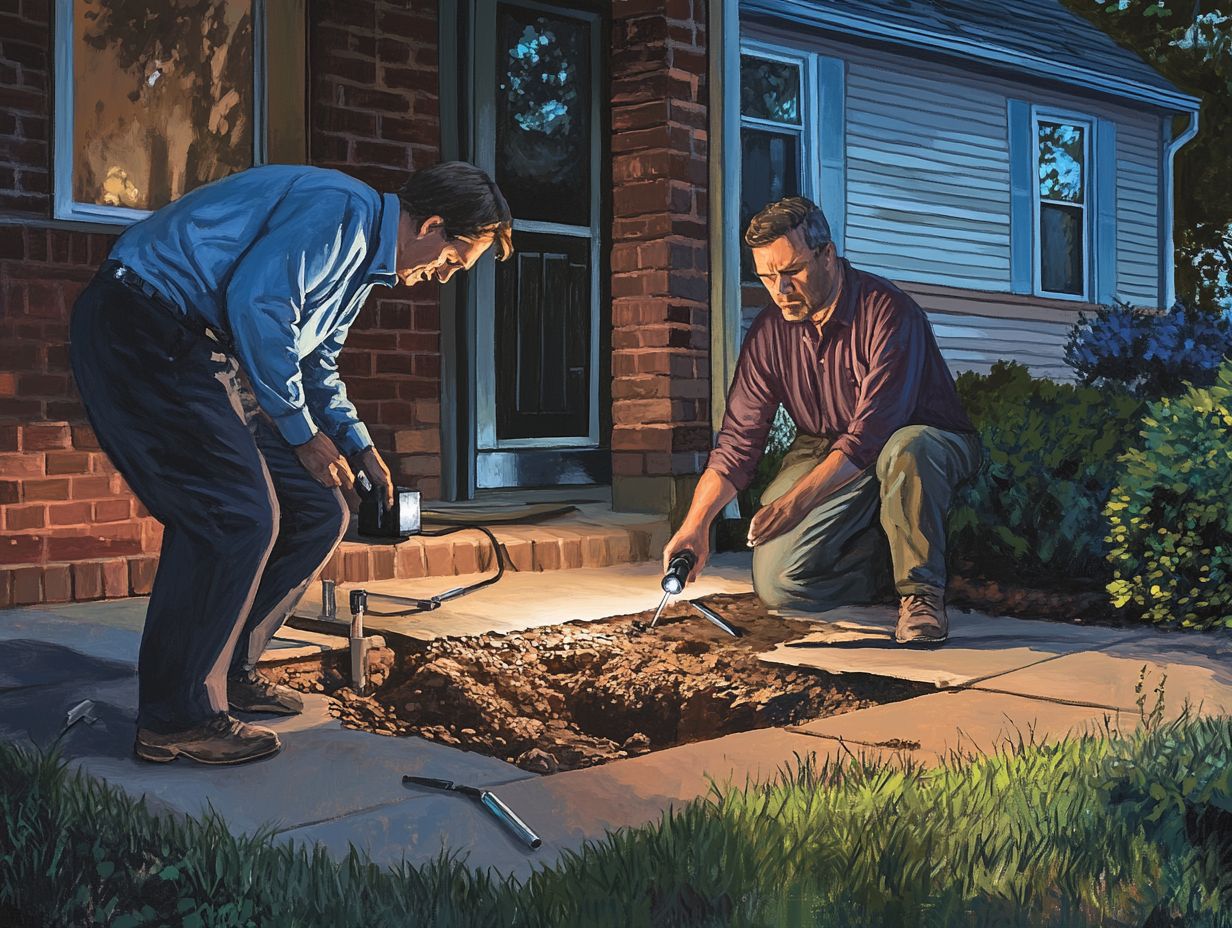
Preparing for a home inspection involves a few essential steps that can pave the way for a smooth evaluation by the inspector. This includes organizing access to critical areas and gathering all necessary documents.
Using inspection checklists can be a valuable tool for both buyers and sellers, helping to highlight areas of concern that may need attention before the inspector arrives.
For sellers, clearing pathways to the attic, basement, and other often-overlooked spaces is vital. This ensures the inspector can conduct a thorough review without any obstacles. Addressing minor issues, like leaky faucets or broken light fixtures, ahead of time not only showcases the property’s upkeep but might also prevent larger concerns from being flagged during the inspection.
Buyers should come prepared with their own checklist to identify specific areas they want inspected. This approach fosters clear communication with the inspector and ensures that nothing slips through the cracks.
Making the home easily accessible enhances the inspection experience and reflects positively on the diligence of both parties involved.
2. During the Home Inspection
During the home inspection, expect the inspector to conduct a meticulous evaluation of the property’s condition, focusing on essential systems like heating, ventilation, and air conditioning (HVAC), plumbing, and electrical systems while documenting their observations precisely. This step is crucial for uncovering potential safety risks and ensuring you are fully informed about any significant issues that could impact your decision-making process.
The inspector also pays attention to structural elements, verifying that the foundation, roofing, and walls are sound and stable. By assessing these various systems and how they interact, the inspector provides you with a comprehensive overview of the property s overall health.
Clear communication is key during this process; any findings are conveyed to you, allowing you to understand the implications for maintenance costs and future investments. These insights shape your perception of the property’s value, significantly influencing your confidence and potentially your offer.
3. After the Home Inspection
Once the home inspection concludes, the inspector delivers a comprehensive report detailing all findings, including major and minor issues uncovered during the evaluation. This document becomes an essential tool for you as a buyer, enabling you to engage with sellers, negotiate necessary repairs or adjustments to the purchase agreement, and estimate potential repair costs for future planning.
It s vital to scrutinize this report closely. Identify which issues are deal-breakers and which might be easily remedied. By understanding the severity and cost of repairs, you can approach negotiations with clarity, fostering productive discussions with the seller.
For instance, if the report flags significant electrical issues, you can request that the seller rectify these problems before closing, or you might negotiate a price reduction to cover the repair costs. Addressing issues promptly can make a significant difference in your negotiations.
This phase of the home buying journey is pivotal; effective communication can lead to a smoother transaction and ensure you feel confident in your investment.
For more helpful tips, consider connecting with a local inspector or real estate agent.
Final Thoughts on Home Inspection
Final thoughts on home inspection underscore the importance of home inspections before closing and highlight the need for thorough preparation and awareness regarding the condition of the property. As a buyer, ensuring you’re well-informed allows you to make confident decisions before finalizing any purchase agreement.
Advocating for quality inspections and knowing about safety issues positions you for significant long-term benefits. This diligence not only safeguards your investment but also paves the way for a smoother transaction process.
It s essential to consider various elements during inspections, such as:
- Structural integrity (how well the building can stand and support itself)
- Electrical systems
- Plumbing
- Environmental hazards
By doing your homework and collaborating with qualified professionals, you can uncover hidden flaws that might otherwise lead to costly repairs. Ultimately, the foresight to conduct comprehensive evaluations translates into a more enabled experience in home ownership.
Don t skip home inspections they are essential for your safety and investment!
Frequently Asked Questions
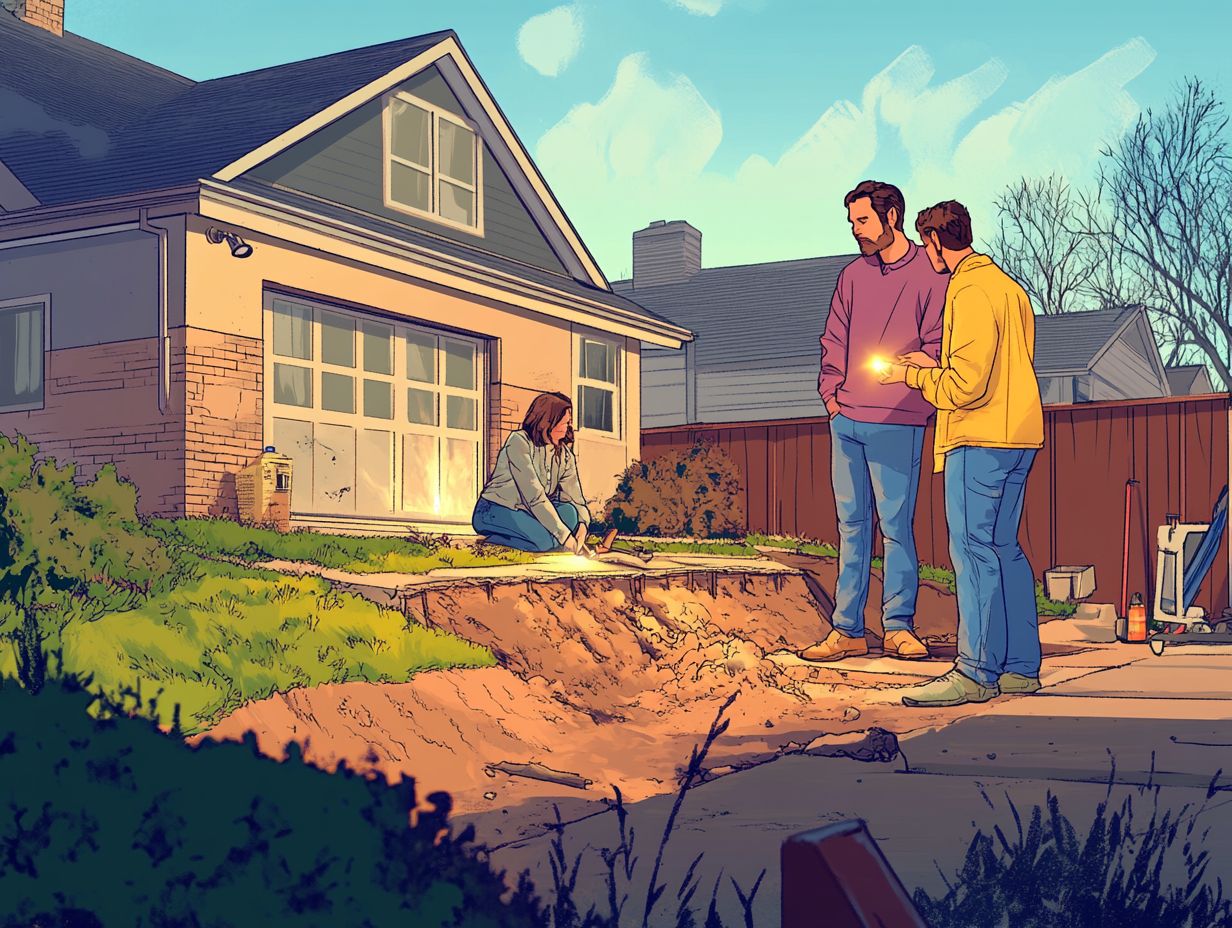
What is the importance of home inspections before buying a house?
Home inspections are important because they provide an in-depth evaluation of the overall condition of the house and can help identify any potential issues. Understanding the importance of a home inspection for buyers can save you from expensive repairs in the future.
Do I really need a home inspection if the house looks new?
Yes, even new houses can have issues that are not visible to the naked eye. A home inspection can uncover any hidden problems and provide peace of mind before making a large investment.
Who should I hire to perform a home inspection?
It is recommended to hire a licensed and experienced professional home inspector. They have the knowledge and expertise to thoroughly evaluate the property and provide a detailed report.
What areas of the house are typically included in a home inspection?
A standard home inspection will include the exterior, interior, roof, structural components, electrical systems, plumbing, heating and cooling systems, and any additional features such as pools or septic tanks.
What happens if the home inspection reveals major issues with the house?
If major issues are found during the home inspection, you have a few options. You can negotiate with the seller to make necessary repairs or lower the purchase price, ask for a credit at closing, or choose to walk away from the deal.
Can a home inspection save me money in the long run?
Absolutely. While a home inspection may cost a few hundred dollars upfront, it can potentially save you thousands in the long run by identifying any major problems that may require expensive repairs or renovations.
For more information or to schedule a home inspection, contact a qualified professional today!


